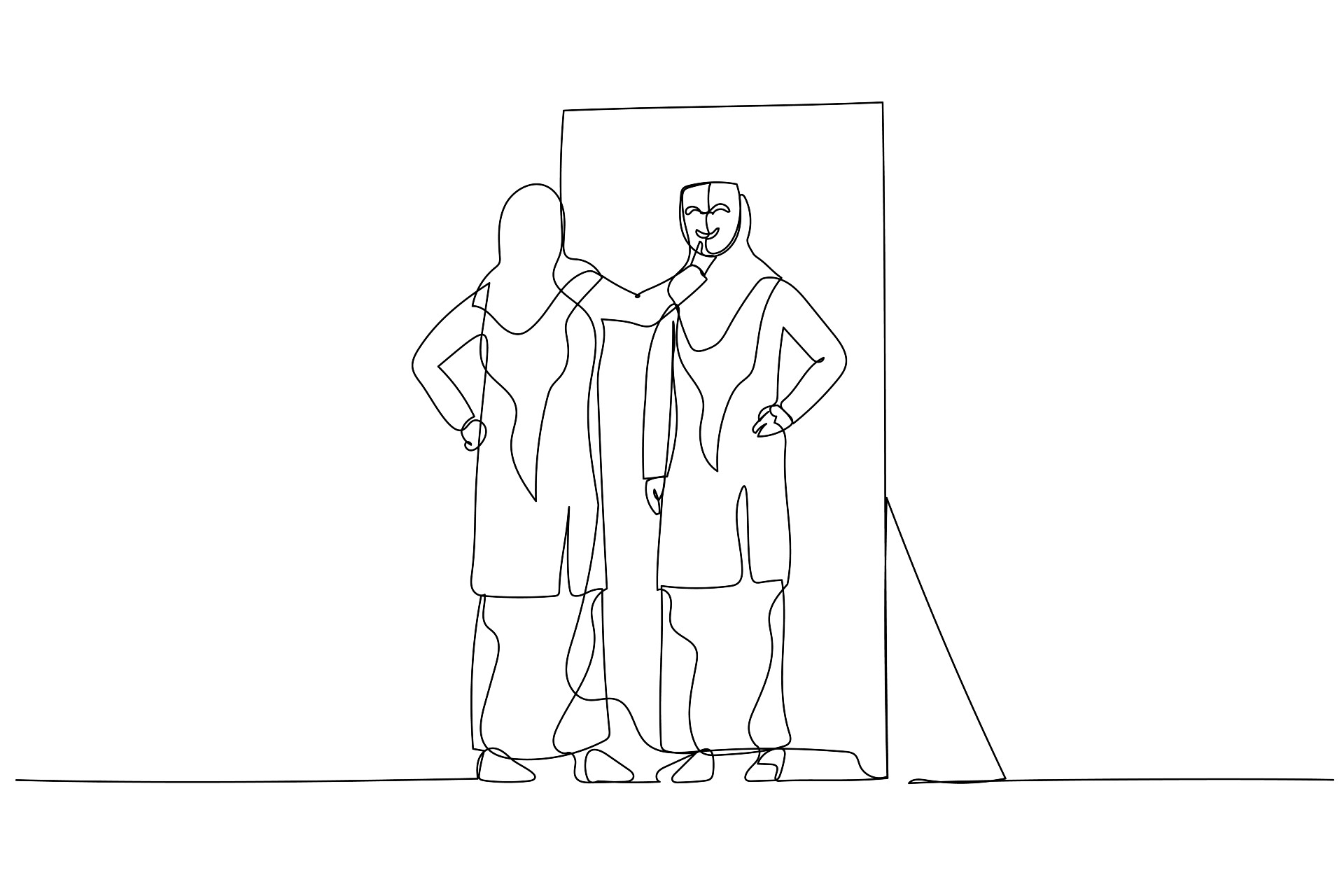“There are still days when I wake up feeling like a fraud, I’m not sure I should be where I am,” said Sheryl Sandberg, Facebook’s chief operating officer. An impressive career at the World Bank or the US Treasury Department, her achievements at Google or being one of those responsible for Facebook’s financial success did not prevent her from suffering from imposter syndrome.
Like Sandberg, there are many women who believe that their careers have been the result of luck rather than hard work. This self-perception sabotages women’s careers and self-esteem and is often fostered by the organisational culture of the companies in which they work.
What will I read about in this article?
- Imposter syndrome and organisational culture
- Dealing with imposter syndrome
- Projects that promote women’s leadership
Organisational culture can trigger impostor syndrome
Talisa Lavarry’s co-workers questioned her and questioned her decisions, challenging her professionalism. Their intimidation, more or less subtle, was beginning to undermine Lavarry’s confidence in her work, and she doubted whether she was qualified for the job, despite constant praise from her clients.
As the behaviour of his peers persisted, his confidence suffered. She felt anxious and constantly thought she was a fraud. What had begun as a healthy nervousness turned into a workplace-induced trauma that made her contemplate suicide. Lavarry reflects on this professional phase of her life in her book, Confessions From Your Token Black Colleague. Among her conclusions, the author asserts that behind the imposter syndrome she felt there was an organisational culture with sexist and racist biases.

Impostor syndrome refers to those who consider that they have achieved an accomplishment more by luck or chance than by their own merits or efforts. It applies to anyone who’s unable to internalise and take ownership of their successes.
“Behind the impostor syndrome she felt there was an organisational culture with sexist and racist biases”.
Psychologists Pauline Rose Clance and Suzanne Imes developed the concept in this 1978 study, which focused on high-achieving women. According to their research, “despite outstanding academic and professional achievements, women who experience the imposter phenomenon persist in believing that they’re not really bright and have fooled anyone who thinks otherwise”.
According to KMPG’s report “Advancing the Future of Women in Business: A Report from the Women’s Leadership Summit“, 75% of female executives identified having experienced imposter syndrome at various points in their careers.
Many respondents felt that women may experience imposter syndrome more than men because of differences in the way boys and girls are raised in childhood. They cite how, from an early age, boys are encouraged to lead, demonstrate self-confidence and exhibit less emotion than girls.
Women also mentioned family expectations, gender roles, social stereotypes and cultural differences as root causes of lack of confidence about their work. In addition, they identified self-imposed pressures and self-criticism as key factors contributing to the development of imposter syndrome.
How can impostor syndrome be addressed and overcome?
When it comes to impostor syndrome, the focus is often on individual sufferers and what they can do to overcome it. But what if it’s more of a collective issue than an individual issue, and what if it’s the corporate culture that needs to change rather than how women deal with job insecurities?
As this Harvard Business Review article points out, there are employees who are unable (or unwilling) to follow classic leadership styles, and that doesn’t mean they have imposter syndrome. Or if they do, it may be precisely because they’re subjected to aggressive or authoritarian leadership that undermines their confidence and self-esteem.
The answer to overcoming imposter syndrome is not to fix individuals, but to create an environment that fosters a variety of leadership styles and where diverse racial, ethnic and gender identities are accommodated.

Other aspects that matter include promoting teamwork and an inclusive culture, with special attention to the needs of the individual. Strong relationships with peers and leaders, based on open and honest communication, within a culture where people feel respected and valued, can help women overcome self-doubt and promote their self-worth.
“Strong relationships based on open and honest communication, in a culture where people feel respected and valued, help women overcome self-doubt.
Advancing women’s leadership to end the impostor syndrome
We’re preceded by a long tradition in which training and professional development have been strictly a male preserve. Except in exceptional cases, women haven’t been allowed to join in intellectual and scientific forums. We have missed out on 50% of our potential.
But this paradigm is changing. We’re moving towards women’s leadership to restore the other half of civilisation’s potential. And we’re doing so thanks to projects like Homeward Bound, an initiative that supports women’s empowerment and climate change mitigation and highlights how entrenched the imposter syndrome is.
It doesn’t matter how smart women are, because they often walk around with the narrative in their head that they’re not good enough in their professional field. This transformational leadership programme strives to reverse that mental narrative.
Projects like this encourage today’s women and girls to see themselves as they are: capable and competent individuals who deserve the achievements they accumulate through their daily efforts.
Sources:


